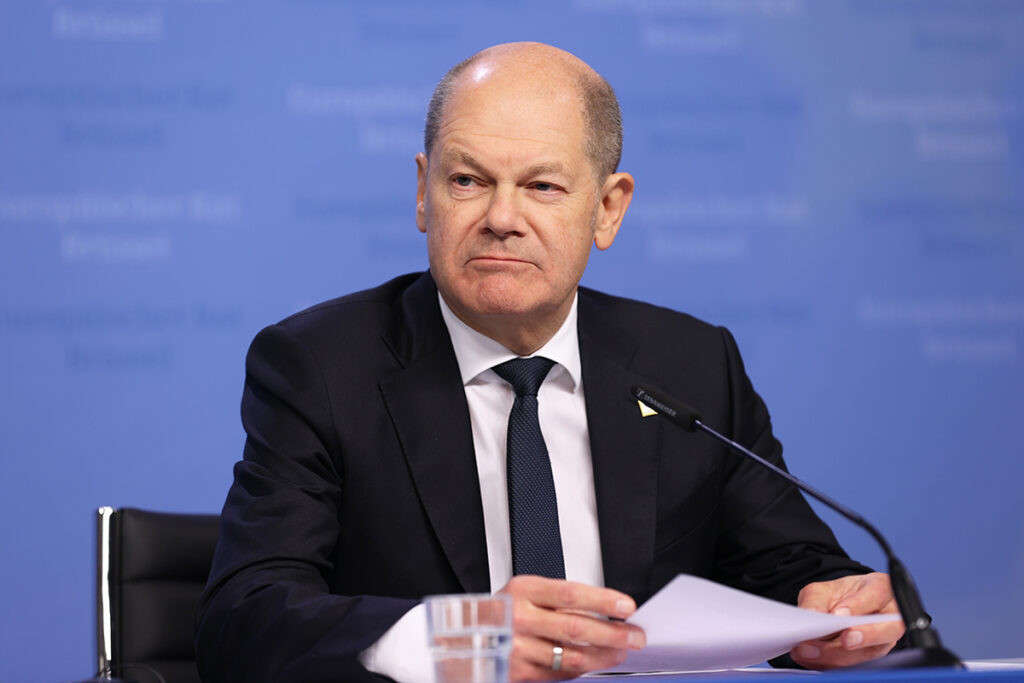Chancellor Olaf Scholz’s leadership falters as his government crumbles, prompting an early election amidst political and economic turmoil.
The Collapse of the Coalition
On Monday, Chancellor Olaf Scholz lost a no-confidence vote in parliament, leading to the dissolution of his government and the announcement of an early election on February 23. This followed the breakdown of his three-party coalition, as the Free Democrats (FDP) withdrew due to unresolved disputes over fiscal policies, particularly regarding debt management. This development leaves Scholz’s Social Democrats (SPD) and the Greens without a parliamentary majority.
Scholz had advocated for significant infrastructure investments, arguing that short-term fiscal restraint would come at a high cost for the future. The collapse of the coalition marked a significant political shift in Germany’s leadership structure.
Political Fallout and Heated Debate
The no-confidence motion sparked intense debate between Scholz and his conservative rival, Friedrich Merz. Scholz was criticized for his fiscal policies, particularly his approach to debt accumulation, which opponents argued placed an undue burden on future generations. Merz focused on the lack of attention to competitiveness and fiscal discipline, criticizing the chancellor’s approach to economic management.
One of the key points of contention was the absence of any mention of Germany’s constitutional spending cap, which is intended to ensure fiscal responsibility. Critics argued that neglecting this policy has contributed to the deterioration of the country’s infrastructure.
Polling and Election Forecasts
Recent polls show the center-right conservatives leading with a margin of over 10 points, leaving Scholz’s SPD behind. The far-right Alternative for Germany (AfD) is also gaining ground and has now surpassed the SPD in popularity. Despite the growing strength of the AfD, mainstream political parties have dismissed the possibility of forming a coalition with them, making the formation of a stable government more challenging.
The increasing fragmentation of the political landscape has added complexity to the prospects of forming a cohesive coalition government, as parties with conflicting priorities vie for power.
Scholz’s Legislative Efforts and Opposition
Before stepping down, Scholz pushed forward several key legislative measures, including a proposal for $11 billion in tax cuts and increased child benefits. These initiatives were aimed at addressing pressing economic challenges, with the potential for some to pass with the support of opposition parties. One of the measures included safeguarding the Constitutional Court from future populist interference, a move that has received cross-party backing.
However, proposals for energy price reductions, primarily led by the Greens, have faced staunch opposition from Merz, who has called for a major overhaul of Germany’s energy policy. Meanwhile, the AfD has made controversial demands, including calls for the deportation of Syrian refugees, which has further heightened political tensions.
Germany at a Critical Crossroads
Germany finds itself at a critical juncture as Chancellor Scholz prepares to lead a caretaker government. The upcoming election is poised to determine the future direction of the country, particularly regarding its leadership, economic recovery, and handling of global challenges.
With conservatives in the lead and the far-right gaining ground, the next few months will likely be characterized by further political uncertainty. The complexity of coalition politics and the growing divisions within the electorate suggest that the road ahead will be challenging for any government formed after the election.


